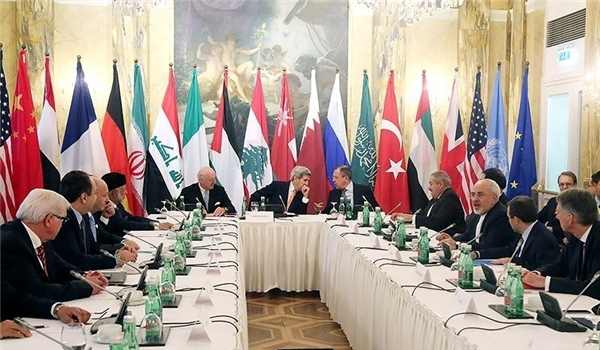
Not to mention the absent. Syrian talks, without Syria
External Relations 9 November 2015Meeting in Vienna on October 30, the delegations of China, Egypt, the EU, France, Germany, Iran – for the first time, Iraq, Italy, Jordan, Lebanon, Oman, Qatar, Russia, Saudi Arabia, Turkey, United Arab Emirates, the United Kingdom, the United Nations, and the United States gathered in Austria to discuss the critical on-going situation in Syria and tried to find out a way to bring about an end to the violence as soon as possible.
The participants had a frank and very direct discussion, covering major aspects of this widely complex issue. Even if substantial differences remain, and oppositions arose among the participants, they reached a mutual understanding on the following main points.
First of all, they showed full support to a united and independent Syria, whose territorial integrity and secular character are considered crucial elements that have to be guaranteed as soon as possible. In a second stance, that area, and the international community as a whole, needs to ensure that State institutions will remain intact.
As previously anticipated by the H.R. Federica Mogherini, the rights of all Syrians, regardless of ethnicity or religious denomination, must be protected. It is needed an immediate securitization of the human rights, and this goal has been targeted as of high priority, by all the participants. Following this path, the negotiators agreed that humanitarian access has to be ensured throughout the territory of Syria, and the participants also committed to increase the general support for internally displaced persons, refugees, and their host countries.
The actors who took part to the summit expressed, more than once, their full endorsement to the use of diplomatic ways in order to end the war and stabilize the country with a peaceful equilibrium among different positions of power. Diversity is a typical aspect of the Syrian population gathering people with very different ethnicity, religious and political beliefs – and the political power is fragmented.
One of the main reasons why it is hard in Syria to build responsive and reliable political institutions has to deal with Da’esh, and other terrorist groups, as designated by the U.N. Security Council, and further, as agreed by the participants, the need to defeat these destructing threats. Defeating Da’esh means necessarily to intervene with concrete military power in Syria, supporting the on-going operations. Even if the diplomatic solution has been strongly supported, in Syria it is hard to find a common conclusion without considering the opportunity to fight, and of course, the risk to create a new phantom-country, as it happened in Iraq and Afghanistan.
Pursuant to the 2012 Geneva Communique and U.N. Security Council Resolution 2118, the main negotiators decided to invite the U.N. to convene representatives of the Government of Syria and the Syrian opposition for a new political process finally leading to credible, inclusive, non-sectarian governance, followed by a new constitution and elections. These new elections will be administered under U.N. supervision in order to assure the highest international standards of transparency and accountability, free and fair, with all Syrians, including the diaspora – in conclusion, eligible to participate.
The discussion among international Super-powers will not reflect the international interference in the Syrian issue. Everybody in the room confirmed that this political process will be Syrian-led and Syrian owned, and that only the Syrian people will be able to decide the future of Syria. The participants, together with the United Nations, will just explore different approaches and political opportunities for a nationwide ceasefire to be initiated on a date certain and in parallel with this renewed political process.
The participants will spend the coming days working to narrow remaining areas of disagreement, and build on areas of agreement. At the end of the process, ministers will reconvene within two weeks to continue the discussions.


